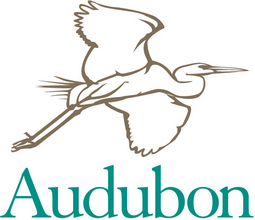Audubon's Seabird Restoration Program (SRP) is conducting a pilot study on the foraging ecology of Atlantic Puffins that breed in the Gulf of Maine. The project will use miniature GPS devices attached to puffins to record foraging trip tracks, times, and locations. The project will also assess tag effects through observations comparing behavior of tagged and untagged puffins. This study will occur alongside SRP’s long-term seabird monitoring work at the field site.
Primitive camping and working on an offshore island is required. The island field station will have limited electricity (solar panels power research needs), propane stoves, composting toilets, and no running water (rainwater is collected for washing; drinking water is brought from the mainland). Research assistants will live on island for the duration of the field season. Communications with the mainland are via cell or VOIP phone, with VHF radios as back-up. The telemetry research assistants will coordinate activities with the Island Supervisor and long-term monitoring crew to ensure all island research and monitoring projects are completed.
**Food and worker’s compensation insurance are provided. Must provide own binoculars, sleeping bag, sleeping pad, and 2-person tent.
- Capture puffins at burrows, attach tags, band, take measurements, collect fecal samples;
- Recapture tagged puffins, remove tags, download data, and reprogram tags as needed;
- Conduct observations from blinds to determine feeding rates for tagged and untagged birds and to capture/recapture targeted puffins;
- Deploy game cameras at puffin burrows and review images from game cameras;
- Enter and proof data in computer databases;
- Coordinate activities with Island Supervisor to ensure all island research and monitoring projects are completed;
- Use binoculars and spotting scopes to aid in the collection of data;
- Perform observation stints in small wooden observation blinds overlooking seabird nests;
- Accurately and neatly record data on specified data sheets;
- Perform camp maintenance duties in coordination with the long-term monitoring team;
- Educate visitors to the island and protect the colony from human disturbance as necessary;
- Assist with landing of equipment and new personnel on the island as needed;
- Maintain and properly care for NAS-issued equipment, including spotting scopes, cameras, GPS, cell phones, radios, and other research equipment;
- Assist with inventory of island equipment and closing of the field station at the end of the season;
- When on the mainland: procure supplies; pack groceries, research supplies, and mail in waterproof island transport bags; clean and fill water jugs for supplying research stations; assist with cleaning and storing equipment at the end of the season; assist mainland-based staff as needed.
- Career goals should include work in the field of conservation biology;
- Experience with bird capture, handling, and banding, preferably with burrow-nesting seabirds. Experience with data-logging telemetry tags and tag attachment techniques is a plus;
- Must be in excellent physical condition (capable of climbing over rugged terrain and slippery rocks and able to lift approximately 50 lbs.) and have wilderness camping experience;
- Ability to work independently and as part of a team, and to get along with people of diverse backgrounds;
- Capable of working long hours outdoors in variable weather conditions;
- Must be able to sit in a small blind for extended portions of the day and maintain focus on data collection;
- Comfortable on the water in small boats;
- A sense of humor, patience, willingness to learn, dedication to wildlife conservation, and interest in seabirds and isolated islands;
- Must provide own binoculars, tent, sleeping pad, and sleeping bag.
- Must be able to work the entire duration of the season from late June through August / September, 2019
